Since it´s Sunday and outside is nothing more than a foggy, moist and chilly depressing landscape, I provided myself with a steaming mug of hot chocolate with a good splash of Rum, made myself comfy and checked Amazon prime for some good old fashioned sailing movie. Since I have the feeling that I´ve seen them all, I switched to the classics. And can it get any classier than “The Bounty”?
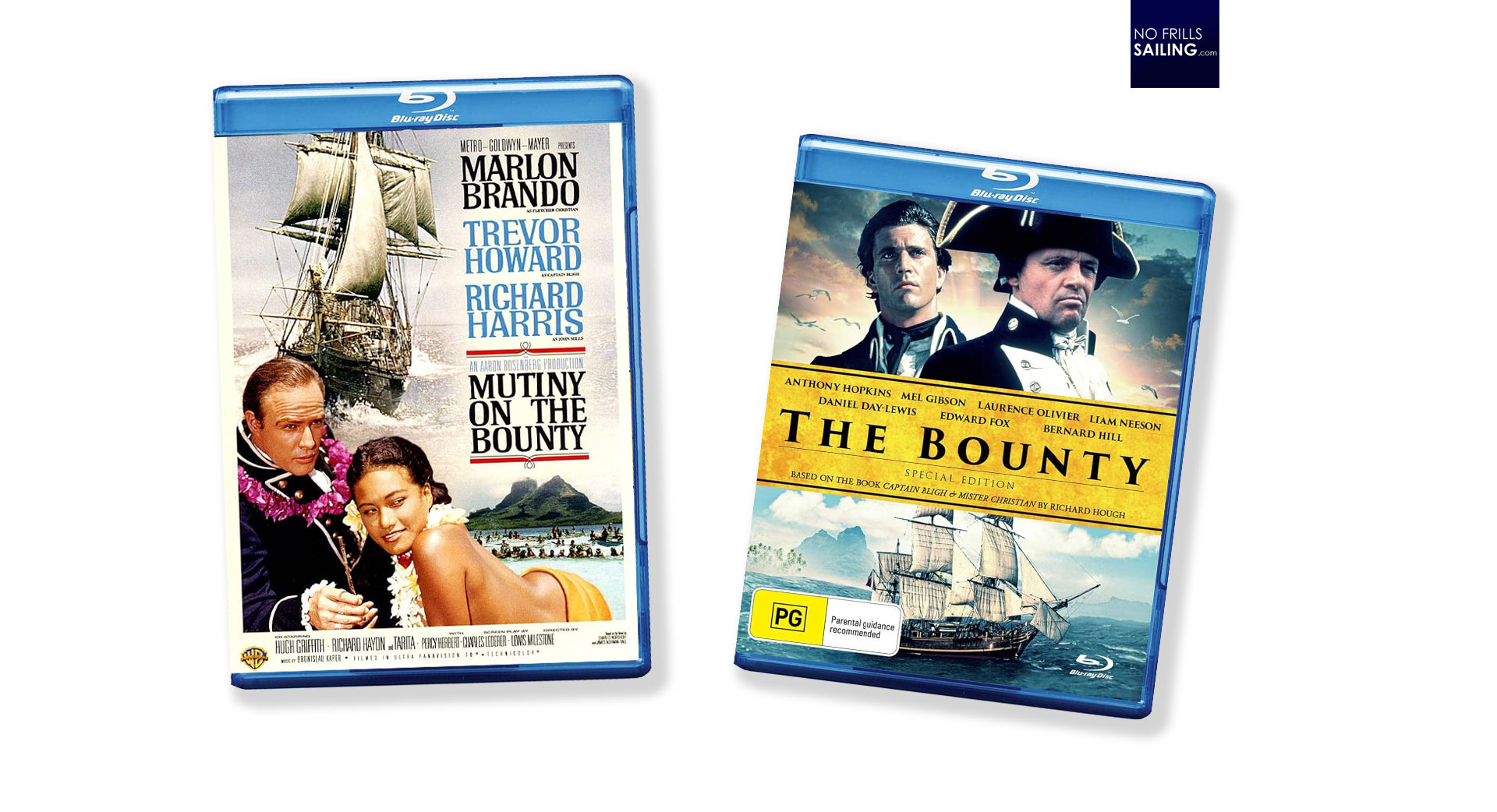
Apparently, there are many movies treating the historic contents of the infamous mutiny on Her Majesty´s Ship BOUNTY, but two of them are most referred to: The 1962 “Mutiny on the Bounty” by Lewis Milestone, featuring acting legend Marlon Brando as Fletcher Christian on the one hand and “The Bounty”, released in 1984 by Roger Donaldson, featuring no less titanic Mel Gibson as the leader of the pack and Sir Anthony Hopkins as William Bligh. Which one to choose? Well, I watched both …
Two different films, two different eras

Checking comments, critics and reviews afterwards, it seems that there is some kind feud going on over which film is better. First of all, comparing these two is difficult since some 20 years separates their making. Aesthetics, acting, music and of course technical solutions in making the movie happen, surely also budget-wise, inevitably cause differences. Which is cool for me: Watching the Brando of the Sixties should be a different experience, than Mel Gibson of the Eighties.
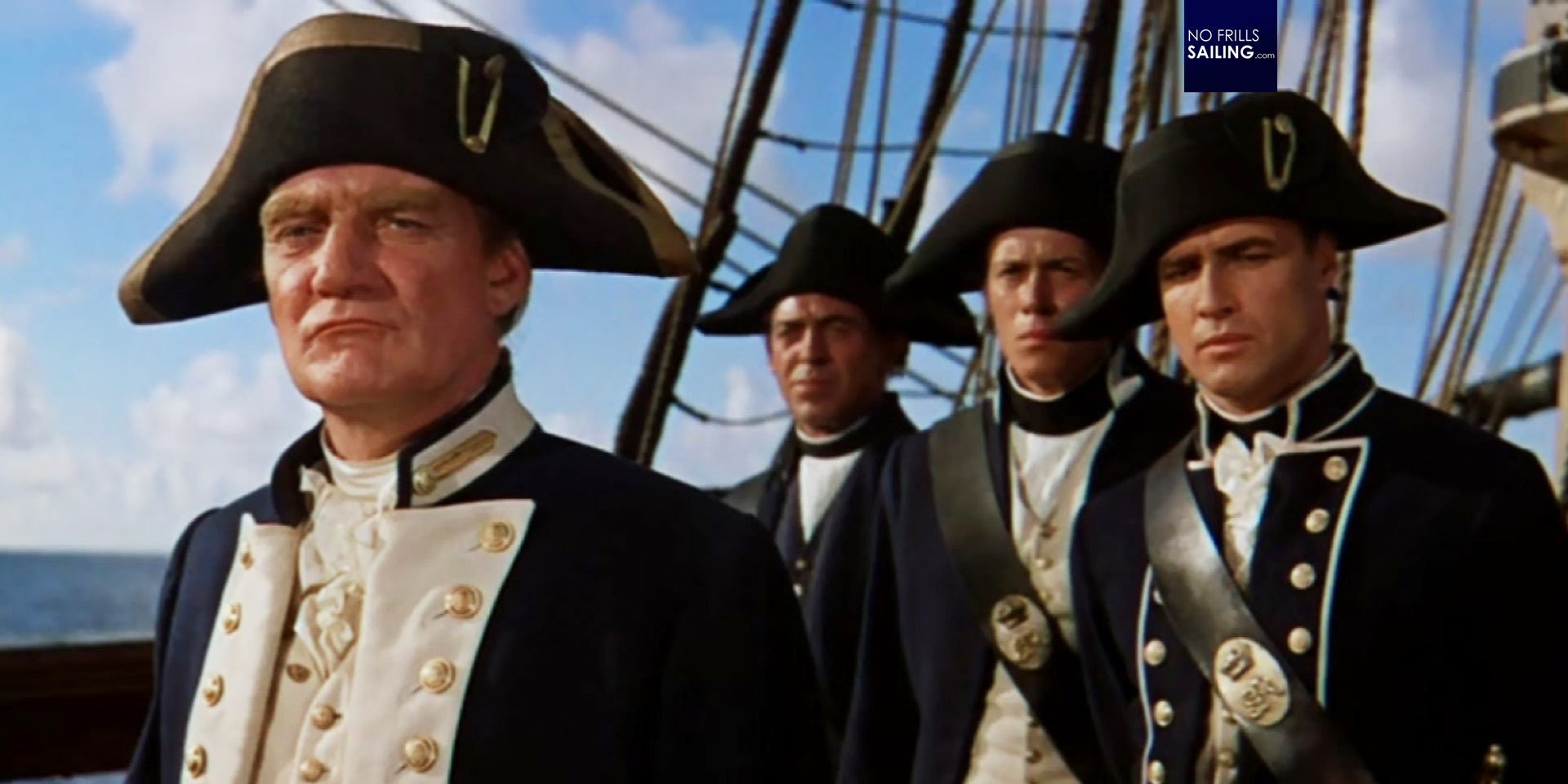
But let´s start what unites both movies. And this is the high level of production design, locations, costumes and acting. Both movies had been shot at marvelous locations on real sailing ships, the 1962 version is still visually absolutely beautiful and stunning. The sailing ships used to depict the BOUNTY are believable and “real” Eighteenth century replicas (with one BOUNTY still floating in in Hong, the other, a slightly bigger replica of the ship, unfortunately stricken and sunk by Hurricane Sandy in 2012 in the US).
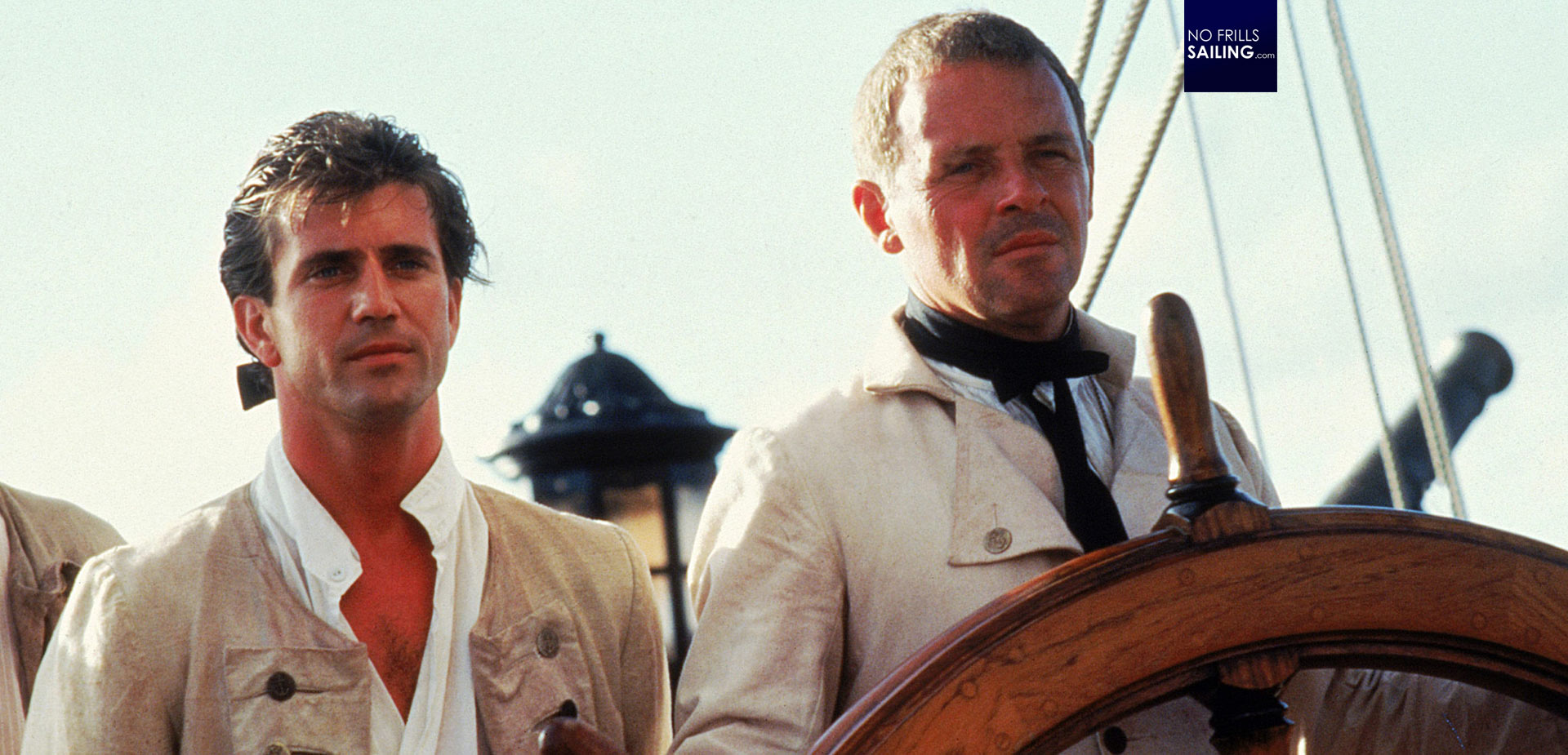
Watching both is a beautiful experience, but a different one. Whereas the ´62-version is far less violent, both in acting, swearing and explicit (or implicit) depiction of sexual engagements, the ´84-version contains contains much more of it. I guess it was just the time of the Eighties and somehow they had to come up with something new to the topic, which – later more on that – is indeed one of the big points in criticism of this “remake”.
Titanic Brando, intricate Hopkins
No matter which version you prefer, two things are just awesome about both: Costumes, settings and locations on the one hand, actors and acting on the other. The young Marlon Brando for example is a joy to look at. That may have something to do with indulging oneself into the “good old times” and the sheer satisfaction seeing this titan of acting at such a young age. I was a bit spoiled by my memories of him as “The Godfather”, so his energetic appearance was a pure bliss.

Although he is a bit over-acting and his star shines slightly brighter than that of his fellow crew-members, Brando is fun to look at. Most impressive, maybe because as a child of the Eighties I feel more connected to them, is the cast of the ´84 version: Mel Gibson and Sir Anthony Hopkins are set, but there are many more. A young, impetuous Liam Neeson for example, or an even younger and absolutely attractive Daniel Day-Lewis. This crew is most impressive.
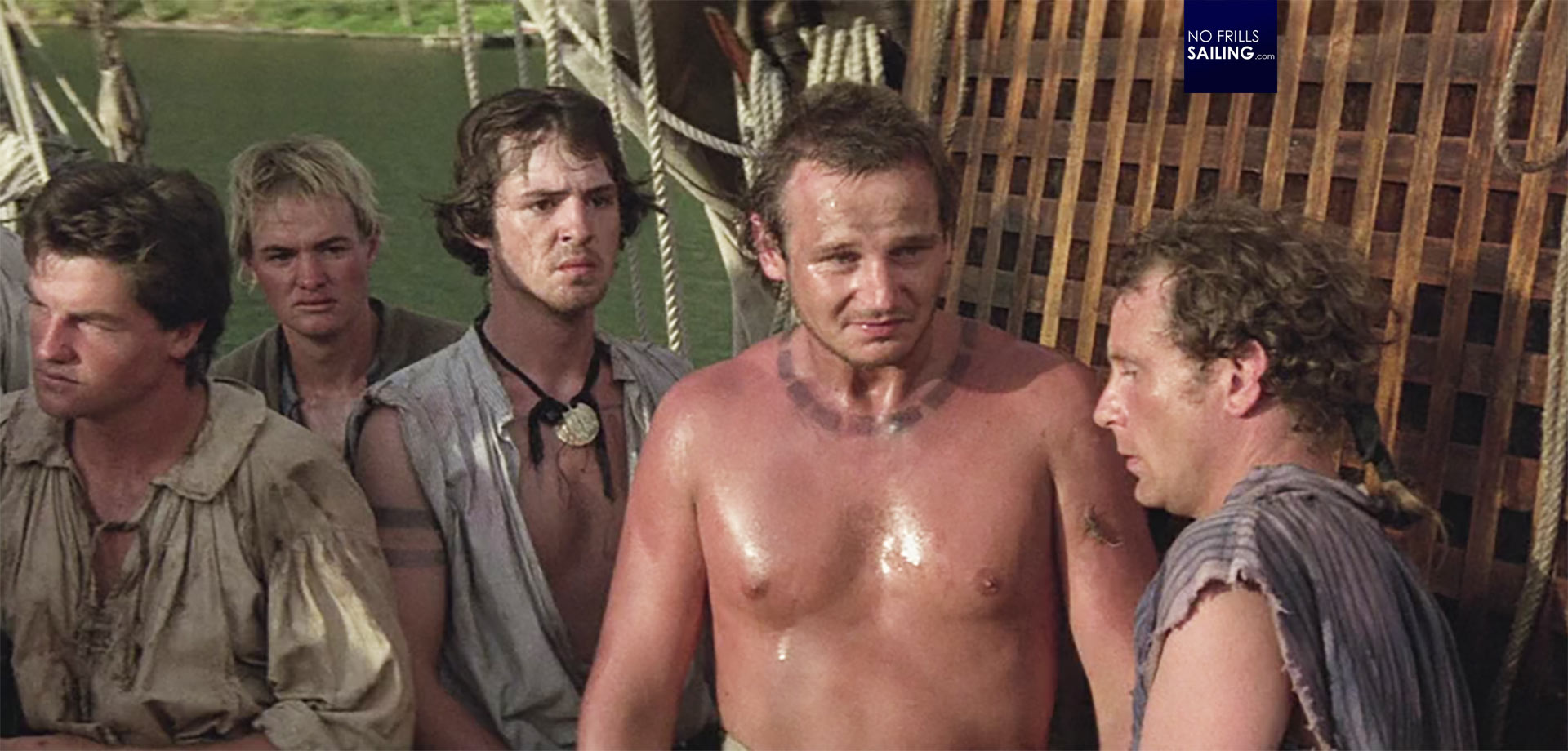
Apart from the story, onto which we will take a brief look at in the following paragraph, I enjoyed both films for the joy of acting. Reading into the production details and behind-the-scenes reports, especially the shooting with Brando seems to have been a pain in the ass back in the Sixties. The horrendous production costs nearly crashed MGM as the movie cashed in only half of the budget at the box office. Nevertheless, both movies are absolute classics – but do thy live up to the true story in a historical sense?
A nuanced approach
What both films convey really well is the setting in which the Bounty-story takes place. The limits of a feudal society of Great Britain, the futile motivation to jump class barriers and the harsh regime aboard a sailship of that time. Whereas the ´64-version more or less focuses on the approach of providing a exotic experience and immersive ride into the Eighteenths century, the ´84 version, from my point of view, tries harder to tell the “true” story, if this is even possible, by shining lights on the various complex reasons for the mutiny to happen.

Even when I was a child and got first to know about the events aboard H.M.S. BOUNTY, I found it hard to believe that it was just the brutal regime on board by an evil Captain that made his First Officer lead a mutiny. “The Bounty” with Mel Gibson is from my point of view very good in showing the close-fitting corset of classes which leads to great differences (even between Lieutenant Bligh and Christian Fletcher) and the sheer overload of perceived freedom on Tahiti the men must have experienced. Going back into that corset – as latest historical findings suggest – may have been the true reason for the dissatisfaction of the crew.
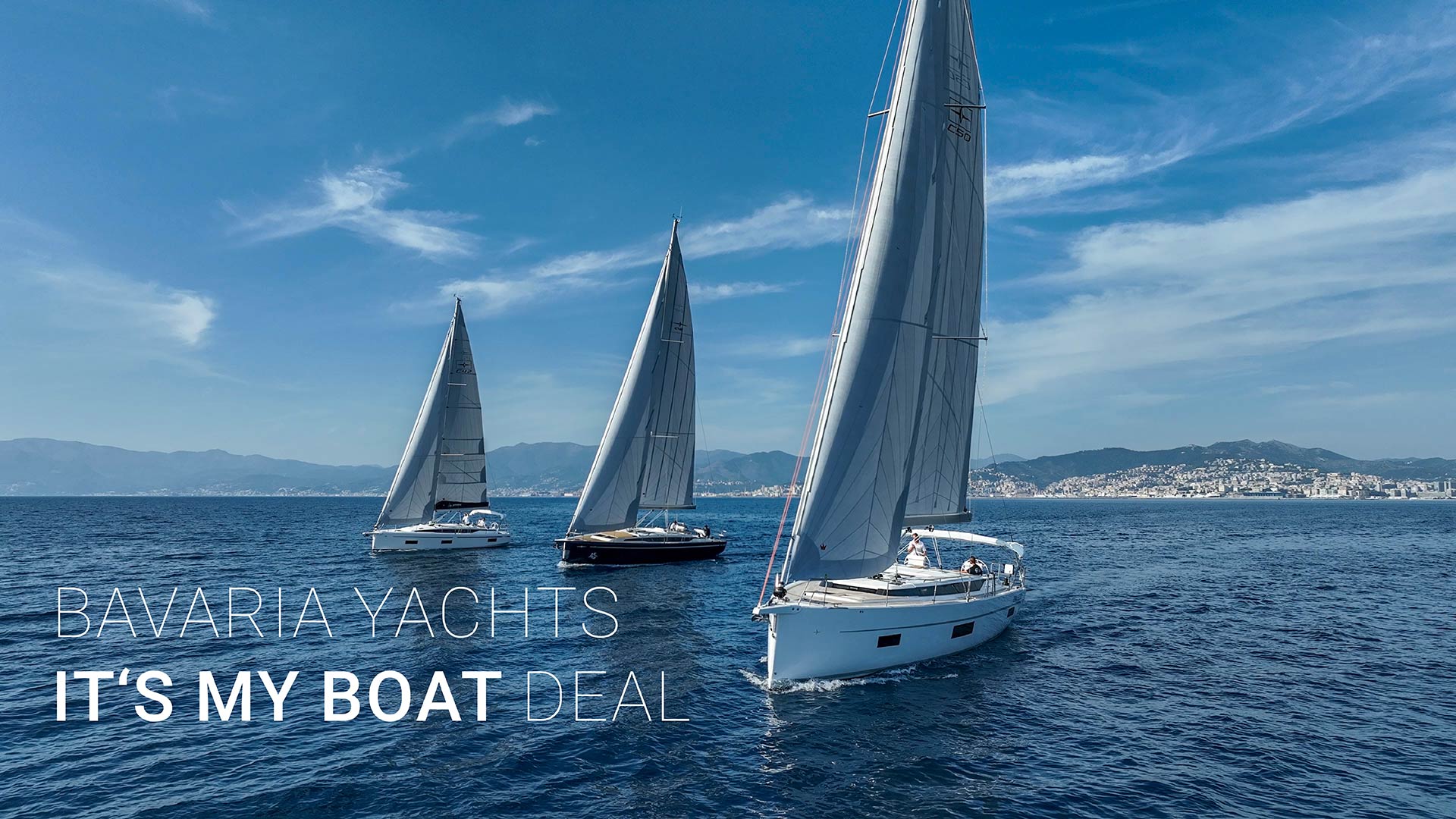
Which mutiny is better?
What both films cannot really transmit are the basic conditions under which this voyage was launched. Both just hint the problem with BOUNTY being a too small ship, the reluctance of the Admiralty to assign a better suiting vessel to that mission. Also, not promoting Bligh to Captain, apart from being a personal insult, was one of the keys to the mutiny. Far too less Officers aboard, no “real” Captain, a vessel too weak and too small and finally, no Marines to guard the code of conduct. A mission doomed from the start, I would say.

I can see why those aren´t mentioned: From a dramatic standpoint, personal struggles are always better stories. Inflating the fact of flogging (which in reality had been doon considerably less under Bligh´s command compared to other vessels), the forced dancing as intense exercise and the personal greed of the protagonists is much more exciting than a detailed depiction of technical and administrative failure. So, which one of the Bounty-movies is best? I liked both quite much, really, but if I had to choose, I´d take Hopkins´ brilliant performance of Lieutenant Bligh, always swinging between ambition and despair. What a great actor!
Pictures © Copyright by MGM Studios & Dino de Laurentiis Productions
Speaking of mutiny …
My first Atlantic sailing – into a mutiny
The “Atlas Obscura”
Arguably the best pirate Netflix-show: “Black Sails”


